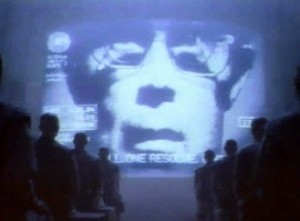 Organic CEO Mark Kingdon, makes his digital marketing predictions for 2007 in a post on ClickZ this morning. Of interest, he links to his predictions for 2006, a “watershed” year. Some of last year’s prognostications remain (promising) works in progress, e.g.,
Organic CEO Mark Kingdon, makes his digital marketing predictions for 2007 in a post on ClickZ this morning. Of interest, he links to his predictions for 2006, a “watershed” year. Some of last year’s prognostications remain (promising) works in progress, e.g.,
- “A blogger will win a Pulitzer Prize.” Not yet, though in late November the Pulitzer Board announced entry categories for online journalism. “With its new rules for online submissions, the Pulitzer Board will require each online element to be a single, discretely designated presentation, such as a database, blog, interactive graphic, slide show, or video presentation.”
- “Opt-in Feeds Take over.” While the trend from push to pull continues unabated, eMarketer reported in late August that RSS reader/aggregator adoption rates continue to lag. According to the article, which used data sourced from MediaBuyerPlanner, only 9% percent of US employees know what RSS is while only 2% are subscribed to an RSS feed. A whopping 88% still have no idea what RSS is. Now what about SEO and SEM’s impact?
- “WiFi is free.” Perhaps at the Hampton Inn or Courtyard by Marriott, but Starbucks still costs a pretty penny, and finding a free hotspot remains elusive, though Bryant Park on a warm summer day is an excellent start. Two days ago, Ars Technica posted on the pros and cons of free municipal broadband access “The city of San Francisco has been evaluating the feasibility of public broadband since 2004, when the city’s board of supervisors allocated several hundred thousand dollars for feasibility studies. Since then, the board has reviewed proposals, searching for a solution that could be implemented at no cost to the city. In April, the city selected a joint proposal from Google and Earthlink for further evaluation.”
Looking ahead to 2007, Mark’s first prediction, “Niche Social Media Sites Achieve Critical Mass,” has tremendous resonance for PR pros who have been saddled with the pressure of landing big-branded mainstream media hits, when attention from a finely targeted niche site might actually have a greater impact on a client’s business objectives — and isn’t that we’re all about anyway? Here are a couple more that are as relevant to PR pros as they are to those on the “other” side of the marketing aisle:
- “Confident Brands Will Turn Themselves Inside Out.” “Traditional marketing taught everyone to control the perception of their brand through careful adherence to brand guidelines and messaging strategies. Now, every consumer has a megaphone and a soapbox. The most relevant and connected brands will be built around the dialog they have with their customers and that their customers have about them.”
- “Engaging Reach Emerges as a Mantra for Advertisers” AND for public relations pros as we move from top-down message management to listening to and engaging in the online conversation. Mark uses the term “engaging reach,” and explains it like this: “In the world of digital communications, “reach” is just step one, not an end goal. Simply reaching a consumer isn’t enough. And if you focus solely on engagement, you won’t reach enough viewers to make an impact. That’s why it makes a lot of sense to measure ‘engaging reach.'” There’s more in his post.
Let’s add one more prediction — a theme on which this blogger has posted recently. The roles of the marketing service firms (PR, advertising, direct, etc.) will continue to blur. It’s a free-for-all wherein all these entities are vying for the rapidly growing piece of the client’s “spend.”
Will traditional PR firms continue to profit from dead tree and broadcast TV “media placement?” Yes. The long tail of clients will see to that. Will niche digital marketing boutiques flourish and grab business from the WPP, Omnicom and Interpublic agencies? Sure.
The real combustion in the marketing services space will take place at the “full service” firms (ad and PR) where the one-stop shopping mantra will be tested. Can their digital offerings compete withthe specialized firms? Will the PR industry’s leadership role in helping clients “make news” further erode. We’ll see in 2007.
PR digital marketing Mark Kingdon public relations digital PR advertising media Organic viral mainstream media journalism